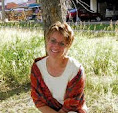Journal entry #5 – Legacy continues
In pursuing the idea of legacy on the internet, I saw how the word ‘legacy’ is commonly seen as “a given”, that a big event does indeed leave a legacy. But is this always true or just an easy, trite cliché? Is there only one legacy or how many? Is it always apparent as to what the legacy is? Is this something linear or more tangential?
I’m thinking about the book like Hitler Youth: Growing up in Hitler’s Shadow by Susan Bartoletti, which is a fantastic compelling look at how the Nazis trained young people into following fascist thinking. Was there a legacy from this early indoctrination? What is/was it?
A more contemporary scenario is the US
Would students be able to follow through on this? Could they discover the connections between the past and the present and determine for themselves what legacies have been left from the Hitler Youth or 9/11?
Lots to think about, but great critical thinking possibilities.













0 comments:
Post a Comment